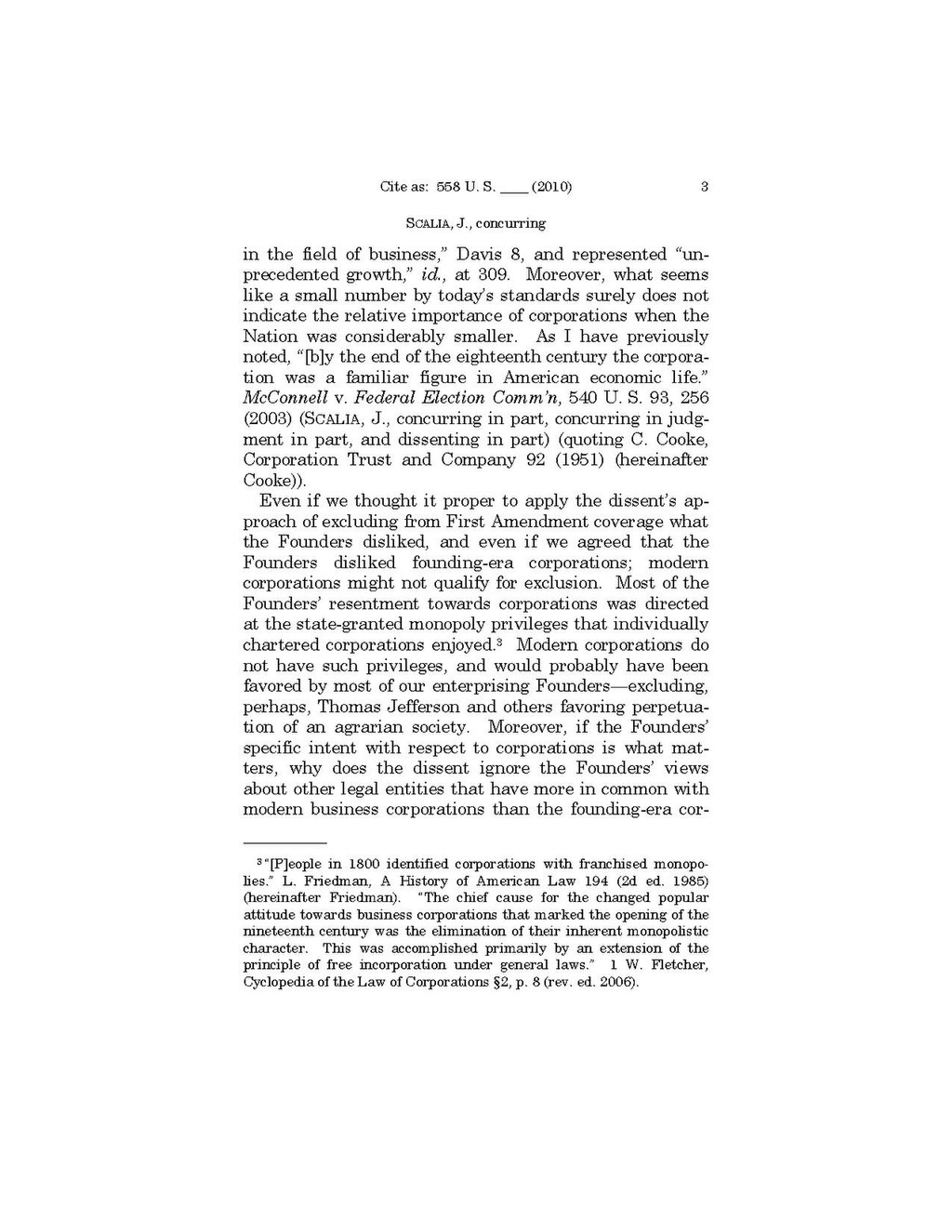SCALIA J.,concurring
in the field of business," Davis 8, and represented "unprecedented growth," id., at 309. Moreover, what seems like a small number by today’s standards surely does not indicate the relative importance of corporations when the Nation was considerably smaller. As I have previously noted, "[b]y the end of the eighteenth century the corporation was a familiar figure in American economic life." McConnell v. Federal Election Comm'n, 540 U. S. 93, 256 (2003) (SCALIA, J., concurring in part, concurring in judgment in part, and dissenting in part) (quoting C. Cooke, Corporation Trust and Company 92 (1951) (hereinafter Cooke)).
Even if we thought it proper to apply the dissent’s approach of excluding from First Amendment coverage what the Founders disliked, and even if we agreed that the Founders disliked founding-era corporations; modern corporations might not qualify for exclusion. Most of the Founders’ resentment towards corporations was directed at the state-granted monopoly privileges that individually chartered corporations enjoyed.[1]Modern corporations do not have such privileges, and would probably have been favored by most of our enterprising Founders—excluding, perhaps, Thomas Jefferson and others favoring perpetuation of an agrarian society. Moreover, if the Founders’ specific intent with respect to corporations is what matters, why does the dissent ignore the Founders’ views about other legal entities that have more in common with modern business corporations than the founding-era cor-
- ↑ "[P]eople in 1800 identified corporations with franchised monopolies." L. Friedman, A History of American Law 194 (2d ed. 1985) (hereinafter Friedman). "The chief cause for the changed popular attitude towards business corporations that marked the opening of the nineteenth century was the elimination of their inherent monopolistic character. This was accomplished primarily by an extension of the principle of free incorporation under general laws." 1 W. Fletcher, Cyclopedia of the Law of Corporations §2, p. 8 (rev. ed. 2006).
